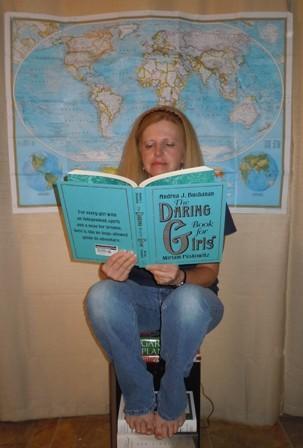Cheryl Hughes: Do You Hear What I Hear?
One of my favorite stories about the misinterpretations that young children make involves a bear. A mother asked her young son what he had done in Sunday school that morning. “We sang a song,” he said.
“What was the song about?” she asked.
“It was a song about a bear,” he answered.
“A bear?” the mother asked, incredulously—she couldn’t remember any Sunday school songs she had ever sung about a bear.
“Yes,” the little boy beamed, “Gladly, the cross-eyed bear (Gladly the Cross I’d Bear).
I remember being a little kid, trying to make sense of the world. I would sing along to Elvis songs and wonder what in the heck he meant by, “I’m in love, a-mash-a-ka (I’m all shook up). For the longest time, my younger sister thought the song, “Shoo Fly,” was about a person of oriental descent who was annoying the singer of the song—“Shoo Fly, don’t bother me, Shoo Fly don’t bother me.” We hear the same things, but often draw very different conclusions, especially when we’re children.
My husband, Garey, remembers a time, as a little boy, when he came into the kitchen and told his mom, “Uncle Jessie talked like he was going to spend the night tonight.” The proclamation puzzled his mother, because Uncle Jessie was a teenager at the time, and he lived just up the road.
“What did he say?” she asked Garey.
“I don’t know. He just talked like he was going to spend the night,” Garey replied.
Garey had heard grownups use the term, “talked like,” and he thought it had to do with how a person’s voice sounded. Garey wanted Uncle Jessie to spend the night, and somewhere in Uncle Jessie’s vocal intonations, Garey had heard what sounded like a desire to do just that.
It seems to be a rare thing, but every once in a while, you will stumble upon someone who hears what you hear. This happened to me in college—my second go round. My friend, John, is one of the best musicians I have ever heard—and that includes professionals—but he had a difficult time focusing on the details of the music degree that he didn’t see as especially relevant, and music history was one of those irrelevant details. We took several music history classes together, and we spent time before tests in the practice rooms, listening to music that was going to be on the listening parts of the tests.
In the introduction to the first music history class, our professor let us use listening sheets—lists of the pertinent pieces of music with our own notes in the margins. For one particular test, John didn’t show up for our planned study session in the practice room. He showed up just fifteen minutes before class was to start. He had gotten the test days confused. We were both pretty stressed about it before I remembered that John heard pretty much what I heard when it came to music.
I quickly made a copy of my listening sheet for him, and he pulled a “B” on the test. After the test, he told me that his favorite analysis of a piece of music was the one I noted, “Sounds like the music from the movie Psycho, with sleigh bells in the background.”
“Well it did, didn’t it?” I said.
“You nailed it,” he agreed.
Recently, at New Image Car Care, a man pulled into the bay to get his oil changed. Jackie, our office manager, entered the car’s tag number, but the information didn’t come up on the computer.
“You been here in this before?” she asked, thinking that maybe we had serviced the car previously, but the tag number had changed.
The man walked away from her, stopped near his car, cocked his head to one side and listened carefully. “I don’t hear anything different,” he said.
Jackie’s, “you been here in this before?” had been interpreted as, “you been hearing this before?”
Everybody got a big laugh out of the misinterpretation, and Jackie decided that she had better amend her question to, “Have you been here in this automobile before?”
- Log in to post comments



























